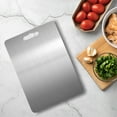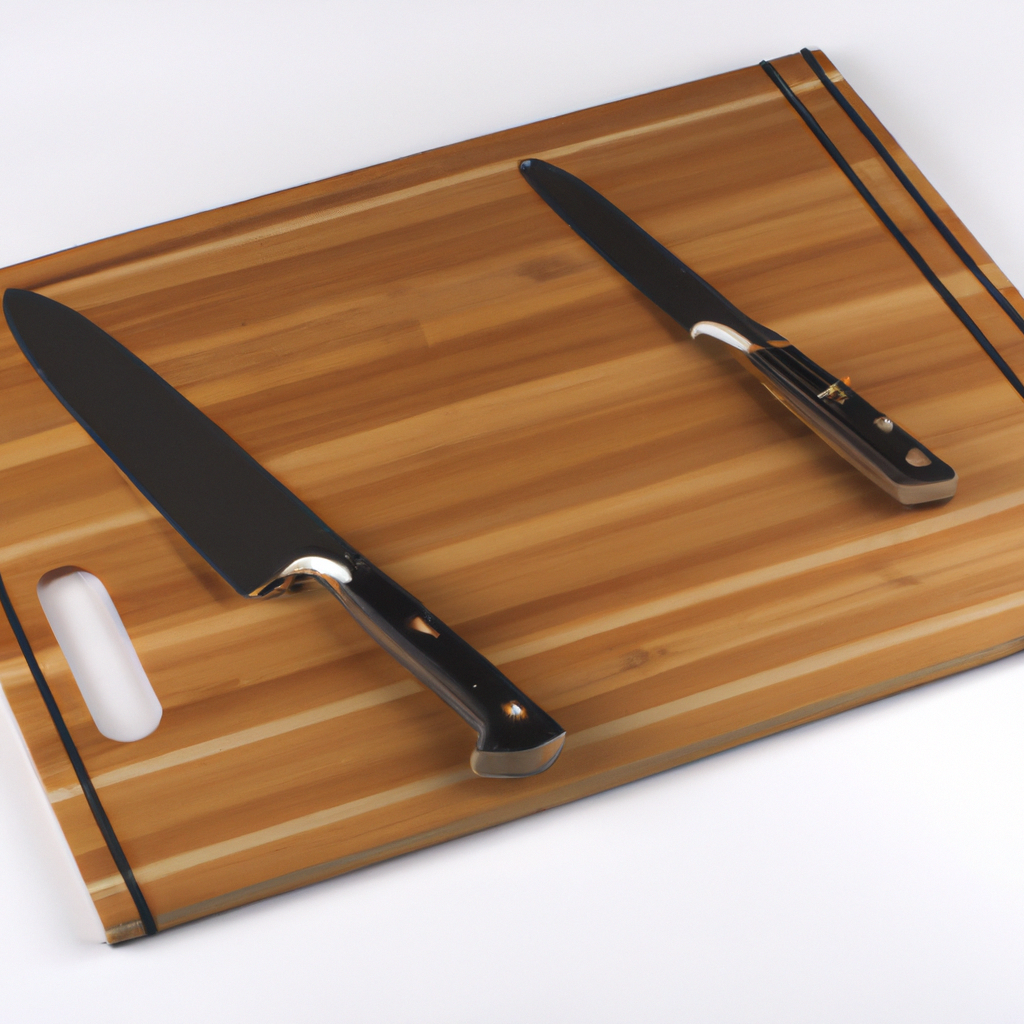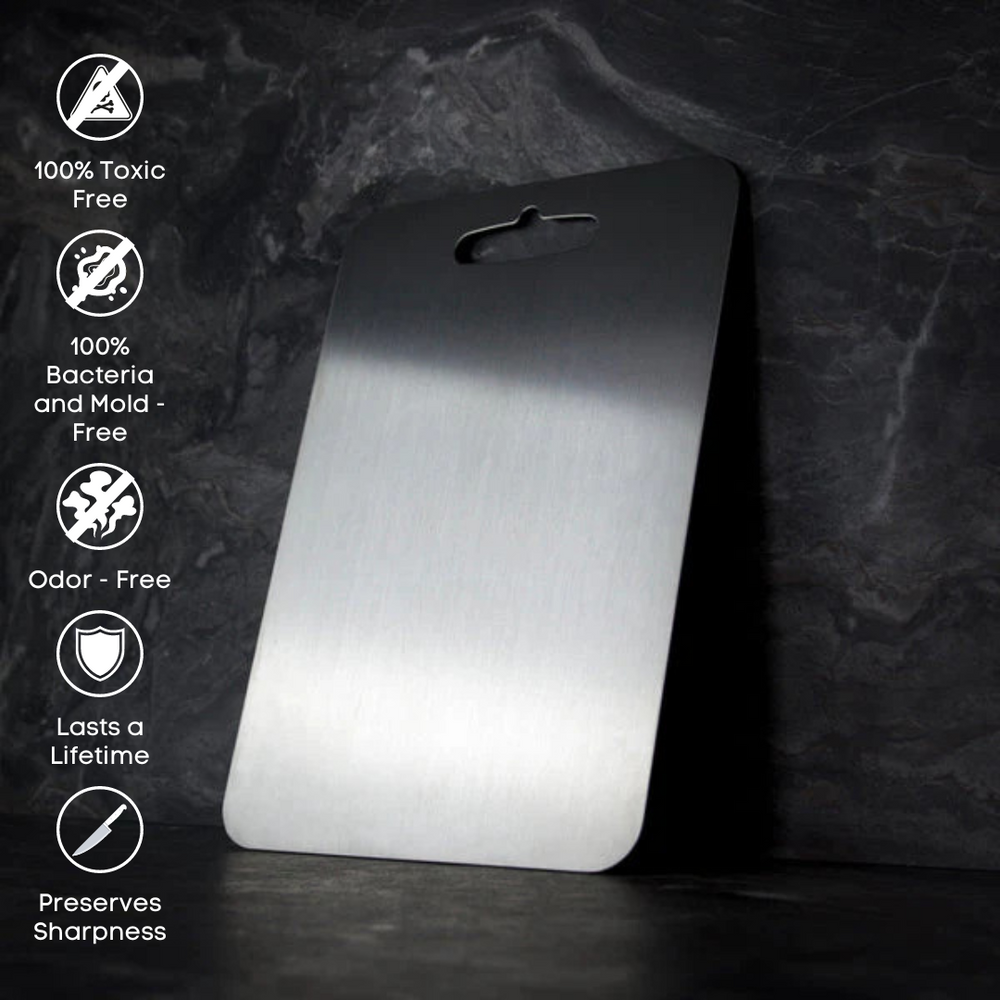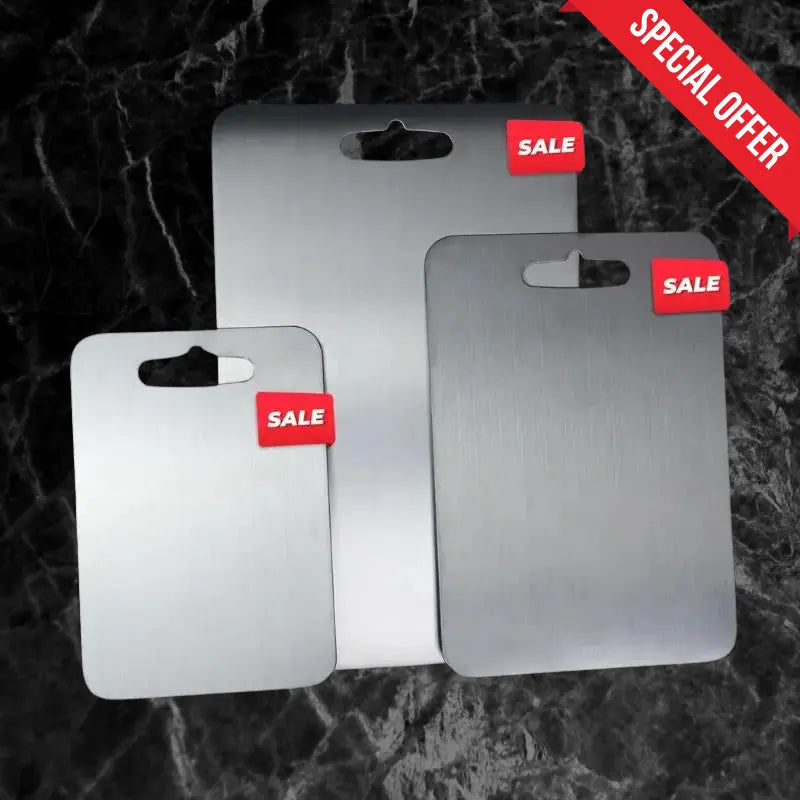Will A Titanium Cutting Board Dull Knives

The allure of titanium – a material synonymous with strength, lightness, and modern innovation – has extended beyond aerospace and medical implants to now grace our kitchens in the form of cutting boards. But this seemingly futuristic upgrade has sparked a heated debate among culinary enthusiasts and professional chefs alike: does a titanium cutting board dull knives? The answer, it seems, is more nuanced than a simple yes or no.
This article delves into the science behind knife blade wear, explores the properties of titanium, and examines expert opinions to unravel the truth about how titanium cutting boards interact with our prized culinary tools. We'll weigh the potential benefits of this innovative kitchen surface against the very real concerns surrounding knife sharpness, providing a comprehensive look at whether titanium cutting boards are a worthwhile investment or a recipe for dull blades.
The Science of Sharpness and Steel
To understand the potential impact of a titanium cutting board, it's crucial to first grasp the mechanics of knife dulling. A knife's edge, even under microscopic examination, isn't perfectly smooth. It consists of a very fine, fragile apex that can be deformed, chipped, or rolled over with repeated use.
The hardness of both the knife blade and the cutting surface plays a crucial role in this process. Materials harder than the knife steel will more readily abrade or deform the blade's edge, leading to dulling.
Titanium: Properties and Perceptions
Titanium, known for its exceptional strength-to-weight ratio and corrosion resistance, exists in various grades, each with differing hardness levels. Commercially pure titanium is relatively soft, while titanium alloys, often combined with elements like aluminum and vanadium, can achieve significantly higher hardness. This distinction is critical when considering its suitability as a cutting surface.
It's a common misconception that all titanium is exceptionally hard. While it is stronger than many steels, certain hardened steel alloys used in high-quality knives can actually exceed the hardness of some titanium grades.
Expert Opinions and Empirical Evidence
The consensus among knife experts and metallurgists isn't definitive. Some argue that even softer grades of titanium can still contribute to dulling, particularly with harder Japanese-style knives made from high-carbon steel. These knives often have very thin, acutely angled edges that are more susceptible to damage.
Others suggest that the texture and finish of the titanium surface are just as important as its hardness. A highly polished, smooth surface might be less abrasive than a textured or brushed one, regardless of the material's inherent hardness.
"The key factor isn't simply the material, but the surface finish and the pressure applied during cutting,"states Mark Richards, a professional knife sharpener with over 20 years of experience. He adds that proper cutting technique, minimizing force and using a rocking motion, can significantly reduce the risk of dulling, regardless of the cutting board material.
Comparative Hardness: Rockwell Scale
The Rockwell hardness scale is a common measure of a material's resistance to indentation. While specific hardness values can vary depending on the exact composition and treatment, typical ranges provide useful comparisons. Hardened knife steel often falls between 58-66 HRC, while commercially pure titanium sits around 70-80 HRB (Rockwell B scale). Some titanium alloys can reach values of 30-40 HRC. This indicates that some knife steels are as hard if not harder than some titanium alloys. Therefore, it is dependent on the quality and hardness of both the knife and the board.
This illustrates the complexities involved. Direct comparisons are needed to fully understand potential risks.
The Cutting Board Landscape: A Broader Perspective
It's important to note that all cutting boards, regardless of their material, will eventually contribute to knife dulling. Wood cutting boards, while generally considered gentler on knives, can harbor bacteria if not properly maintained. Plastic cutting boards, although easy to clean, can be quite abrasive, especially cheaper varieties.
Glass and ceramic cutting boards are notorious for their knife-dulling properties due to their extreme hardness. The best cutting board material depends on how regularly the owner sharpens their knives.
"There's no such thing as a knife-sharpening cutting board,"says Chef Antoine Dubois, a Michelin-starred chef known for his meticulous knife skills.
"It's a trade-off between hygiene, ease of maintenance, and the rate at which your knives dull. Regular sharpening is essential regardless of your choice."
The Verdict and Future Considerations
While the evidence suggests that titanium cutting boards can contribute to knife dulling, the extent depends on several factors: the titanium grade, surface finish, the hardness of the knife steel, and the user's cutting technique. A softer grade of titanium may be a better choice.
If you are considering a titanium cutting board, consider the types of knives you use most frequently. If you primarily use harder knives, consider a titanium board for its hygiene and durability.
Further research is needed to definitively quantify the impact of different titanium cutting board finishes on knife sharpness. Future studies comparing the wear rates of knives used on various cutting board materials, including titanium, under controlled conditions would be invaluable.
Ultimately, the decision to invest in a titanium cutting board comes down to individual priorities and a willingness to maintain knife sharpness through regular honing and sharpening. The futuristic appeal and potential hygiene benefits may outweigh the risk of slightly increased dulling for some, while others may prefer to stick with more traditional materials. Consumers should research the titanium product before purchasing.


















